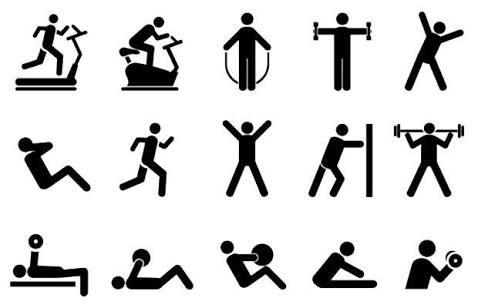IMPROVING SELF ESTEEM FOR BETTER OUTLOOK
.jpeg)
Self-Esteem- confidence in one's own worth or abilities; self-respect.
.jpeg)
When it comes to your self-worth, only one opinion truly matters — your own. And even that one should be carefully evaluated; we tend to be our own harshest critics.
.jpeg)
“Unconditional human worth assumes that each of us is born with all the capacities needed to live fruitfully, although everyone has a different mix of skills, which are at different levels of development.” He emphasizes that core worth is independent of externals that the marketplace values, such as wealth, education, health, status — or the way one has been treated.
Some navigate the world — and relationships — searching for any bit of evidence to validate their self-limiting beliefs. Much like judge and jury, they constantly put themselves on trial and sometimes sentence themselves to a lifetime of self-criticism.
.jpeg)
Following are eight steps you can take to increase your feelings of self-worth.
- Be mindful.
.png)
We can’t change something if we don’t recognize that there is something to change. By simply becoming aware of our negative self-talk, we begin to distance ourselves from the feelings it brings up. This enables us to identify with them less. Without this awareness, we can easily fall into the trap of believing our self-limiting talk, and as meditation teacher Allan Lokos says, “Don’t believe everything you think. Thoughts are just that — thoughts.”
As soon as you find yourself going down the path of self-criticism, gently note what is happening, be curious about it, and remind yourself, “These are thoughts, not facts.”
- Change the story.

We all have a narrative or a story we’ve created about ourselves that shapes our self-perceptions, upon which our core self-image is based. If we want to change that story, we have to understand where it came from and where we received the messages we tell ourselves. Whose voices are we internalizing?
“Sometimes automatic negative thoughts like ‘you’re fat’ or ‘you’re lazy’ can be repeated in your mind so often that you start to believe they are true,” says Jessica Koblenz, Psy.D. “These thoughts are learned, which means they can be unlearned. You can start with affirmations. What do you wish you believed about yourself? Repeat these phrases to yourself every day."
- Avoid falling into the compare-and-despair rabbit hole.
.jpeg)
“Two key things I emphasize are to practice acceptance and stop comparing yourself to others,” says psychotherapist Kimberly Hershenson, LMSW. “I emphasis that just because someone else appears happy on social media or even in person doesn’t mean they are happy. Comparisons only lead to negative self-talk, which leads to anxiety and stress.” Feelings of low self-worth can negatively affect your mental health as well as other areas in your life, such as work, relationships, and physical health.
- Channel your inner rock star.
.jpeg)
Albert Einstein said, “Everybody is a genius. But if you judge a fish by its ability to climb a tree, it will live its whole life believing that it is stupid.” We all have our strengths and weaknesses. Someone may be a brilliant musician, but a dreadful cook. Neither quality defines their core worth. Recognize what your strengths are and the feelings of confidence they engender, especially in times of doubt. It’s easy to make generalizations when you “mess up” or “fail” at something, but reminding yourself of the ways you rock offers a more realistic perspective of yourself.
- Exercise.
.jpeg)
Many studies have shown a correlation between exercise and higher self-esteem, as well as improved mental health. “Exercising creates empowerment both physical and mental,” says Debbie Mandel, author of Addicted to Stress, “especially weight lifting where you can calibrate the accomplishments. Exercise organizes your day around self-care.” She suggests dropping a task daily from your endless to-do list for the sole purpose of relaxation or doing something fun, and seeing how that feels. Other forms of self-care, such as proper nutrition and sufficient sleep, have also been shown to have positive effects on one’s self-perception.
- Do unto others.
Hershenson suggests volunteering to help those who may be less fortunate. “Being of service to others helps take you out of your head. When you are able to help someone else, it makes you less focused on your own issues.”
David Simonsen, Ph.D., LMFT, agrees:
“What I find is that the more someone does something in their life that they can be proud of, the easier it is for them to recognize their worth. Doing things that one can respect about themselves is the one key that I have found that works to raise one’s worth. It is something tangible. Helping at a homeless shelter, animal shelter, giving of time at a big brother or sister organization. These are things that mean something and give value to not only oneself, but to someone else as well.”
There is much truth to the fact that what we put out there into the world tends to boomerang back to us. To test this out, spend a day intentionally putting out positive thoughts and behaviors toward those with whom you come into contact. As you go about your day, be mindful of what comes back to you, and also notice if your mood improves.
- Forgiveness.
.jpeg)
Is there is someone in your life you haven’t forgiven? An ex-partner? A family member? Yourself? By holding on to feelings of bitterness or resentment, we keep ourselves stuck in a cycle of negativity. If we haven’t forgiven ourselves, shame will keep us in this same loop.
“Forgiving self and others has been found to improve self-esteem,” says Schiraldi, “perhaps because it connects us with our innately loving nature and promotes an acceptance of people, despite our flaws.” He refers to the Buddhist meditation on forgiveness, which can be practiced at any time: "If I have hurt or harmed anyone, knowingly or unknowingly, I ask forgiveness. If anyone has hurt or harmed me, knowingly or unknowingly, I forgive them. For the ways I have hurt myself, knowingly or unknowingly, I offer forgiveness."
- Remember that you are not your circumstances.
Finally, learning to differentiate between your circumstances and who you are is key to self-worth. “Recognizing inner worth, and loving one’s imperfect self, provide the secure foundation for growth,” says Schiraldi. “With that security, one is free to grow with enjoyment, not fear of failure — because failure doesn’t change core worth.”
We are all born with infinite potential and equal worth as human beings. That we are anything less is a false belief that we have learned over time. Therefore, with hard work and self-compassion, self-destructive thoughts and beliefs can be unlearned. Taking the steps outlined above is a start in the effort to increase self-worth, or as Schiraldi says, to “recognize self-worth. It already exists in each person.”
